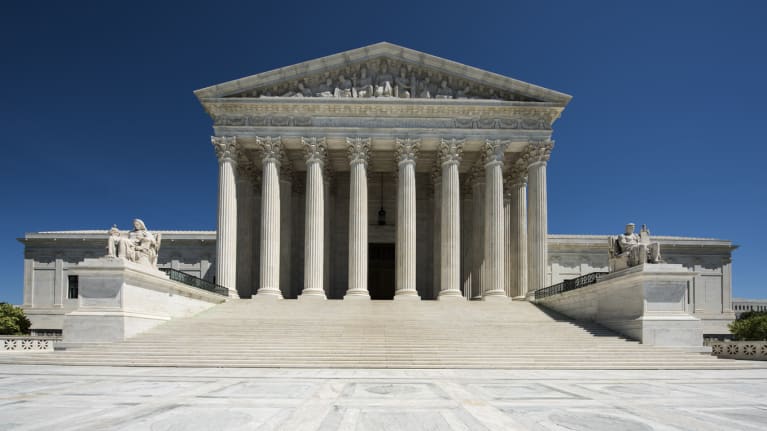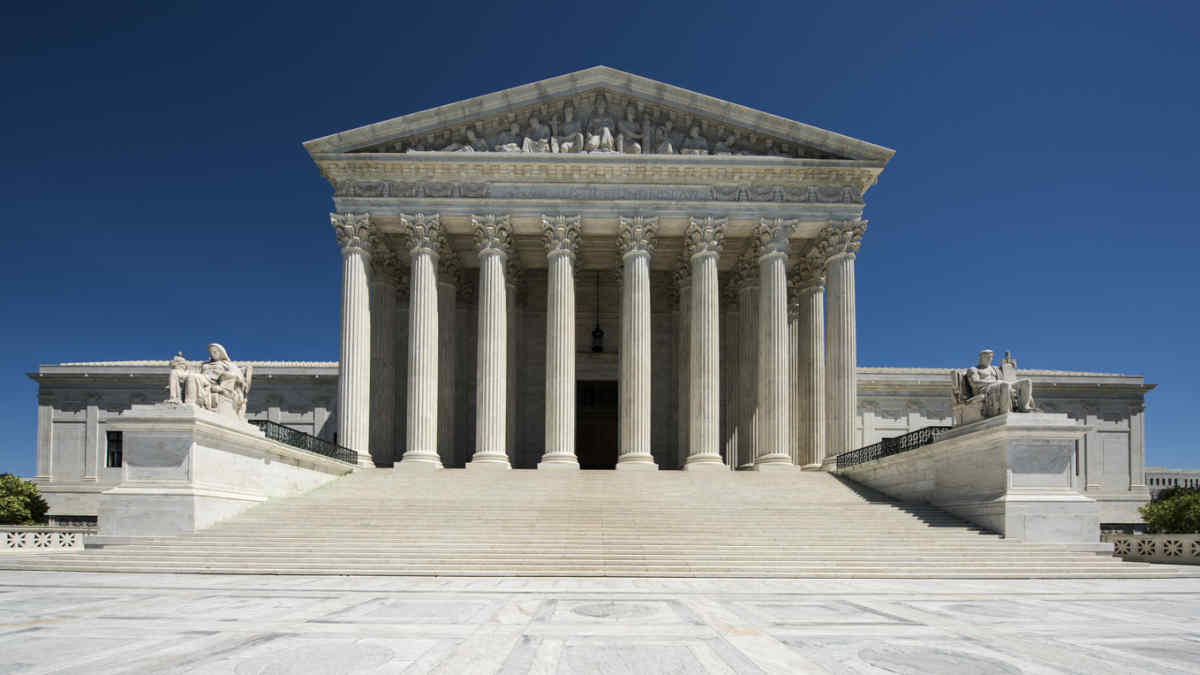

?The National Labor Relations Act (NLRA) typically pre-empts employer claims against unions under state law, but a narrow exception to this rule exists. The U.S. Supreme Court announced on Oct. 3 that it will clarify whether this exception includes when a strike results in incidental damage to property. If the exception is interpreted this broadly, unions may be held liable for greater amounts when there are such damages during strikes. Some legal experts think such an interpretation by the high court is likely.
In this case, Glacier Northwest Inc. v. International Brotherhood of Teamsters, a work stoppage by 16 company truck drivers allegedly resulted in the spoilage of 16 partial and full loads of cement.
On Aug. 11, 2017, while the company and Teamsters Local Union, No. 174 were negotiating a new collective bargaining agreement, multiple drivers returned their trucks and abandoned work. The company was able to unload the cement before it hardened in the drums of the trucks but the work stoppage resulted in the loss of the concrete itself. The employer claimed the drivers had coordinated with the union to specifically time this stoppage such that it would lead to the cement spoiling and further hurt the company financially.
Tort Damages Sought
The company brought suit against the union in Washington state court for torts related to property damage it suffered due to the work stoppage.
“A tort is an action to recover damages for injuries caused by the actions of another party,” said David Pryzbylski, an attorney with Barnes & Thornburg in Indianapolis. “Depending on the state, the damages related to a tort might be limitless. While a party can typically only recover for the harm they have suffered—that is, obtain compensatory damages—a party may also be awarded punitive and other types of damages, which vary from jurisdiction to jurisdiction.”
A tort action is the main way the noncriminal law has of providing remedies to people who are harmed by others, said David Miller, an attorney with Bryant Miller Olive in Miami. “Tort damages can be extremely large,” he noted. “While the NLRA does prohibit certain kinds of actions by unions or employees, it does not authorize damages awards to employers except in very narrow circumstances not applicable here.”
In this case, the union filed a motion to dismiss the tort claims as pre-empted by the NLRA, which the trial court granted. The Washington Court of Appeals reversed, holding that the intentional destruction of property during a work stoppage was not activity protected by the NLRA.
The Washington Supreme Court reversed the Washington Court of Appeals. The Washington Supreme Court held that the trial court properly dismissed these claims as pre-empted by the NLRA because the damages were incidental to a strike arguably protected by federal law.
Glacier Northwest petitioned the U.S. Supreme Court to review the Washington Supreme Court’s decision, which the U.S. Supreme Court has agreed to do.
Split Among Lower Courts
A patchwork of what claims are pre-empted has developed over the years, including claims related to property rights and property damage, Pryzbylski noted.
“The decision of the Washington Supreme Court here is seemingly contrary to decisions of Illinois courts and courts within the 5th, 6th and 7th Circuits that have held such claims are not pre-empted,” he said.
The Glacier Northwest case does not involve any violence or vandalism, said Steven Katz, an attorney with Constangy, Brooks, Smith & Prophete in Los Angeles. Violence or vandalism would clearly be acts of property destruction. “The law clearly permits state law claims for such damage, and no one disputes it,” he said.
Instead, this case concerns circumstances where the mere timing of a walkout can cause property damage. “Such cases almost always involve products that can spoil if a walkout is carefully timed, often where the spoilage can damage equipment if it occurs,” Katz said. “Employers whose businesses do not involve perishable goods or raw materials in an intermediate state during manufacturing are unlikely to be impacted by the decision, one way or the other.”
He said the Washington Supreme Court’s decision runs counter to a clear and long-standing consensus on the federal level that strikes and walkouts timed to spoil inventory and inflict collateral property damage on an employer are beyond the protections of the NLRA and may be remedied under state law.
How Supreme Court Might Rule
“As an appellate specialist for more than two decades, it is very clear to me that the Supreme Court took up this case to reverse the Washington Supreme Court and restore that consensus. In fact, there is a distinct possibility that the court will reverse in a short unanimous decision—called a per curiam or ‘by the court’ decision—without oral argument,” Katz said.
However, if the U.S. Supreme Court rules that federal law pre-empts a state law claim for damages, unions may be motivated to time work stoppages to create maximum damage to an employer’s operations, noted Daniel Johns, an attorney with Cozen O’Connor in Philadelphia.
Moreover, if the Supreme Court precludes a company’s state law claims, employers will be vulnerable to tactics like the ones used in this case without having much remedy, said Robert Boonin, an attorney with Dykema in Ann Arbor, Mich.
Nonetheless, he added, “It’s well-established that pre-emption is designed to protect bargaining, but good-faith bargaining is not relevant when there’s violence or damage to property. The damage done as alleged in this case was intentional and covered by traditional state law doctrines. The NLRA should not be construed to permit conduct that by any other standard would be illegal; unions should be held to state law standards protecting physical property.”

